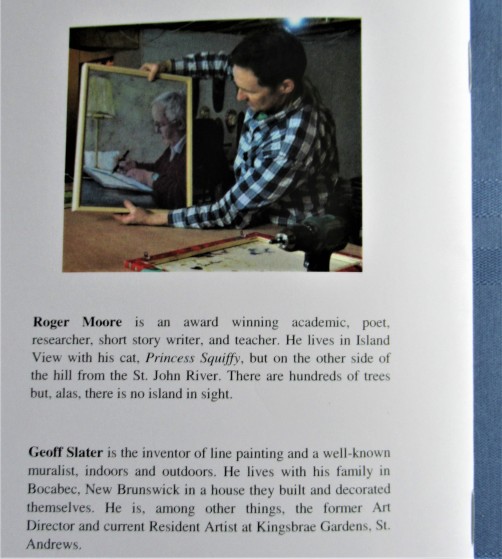
Unveiling
McAdam Railway Station
Sunday, 30 June 2019
Today at 1:00 pm is the unveiling of Geoff Slater’s mural and diorama at McAdam Railway Station. In celebration of the Event, Geoff and I put together a little chapbook of poems on McAdam illustrated with two drawings of the railway station, , a photo of Geoff working on his mural, and another of him framing a portrait of yours truly, painted by Ruby Allan and framed by Geoff.

We are hoping for a nice group of people to attend the unveiling. There will also be a summer fashion show with some of the leading station ladies present.
 I am sure a great time will be had by all and everyone is invited. Of course, not everyone will turn up, but I am sure that these two beautiful ladies will be there.
I am sure a great time will be had by all and everyone is invited. Of course, not everyone will turn up, but I am sure that these two beautiful ladies will be there.












